some updates on the protests in türkiye
türkiye is facing its largest wave of unrest in years, sparked by the arrest of istanbul’s mayor and president erdoğan’s top political rival, ekrem imamoğlu.
Turkey is facing its largest wave of unrest in years, sparked by the arrest of Istanbul’s mayor and President Erdoğan’s top political rival, Ekrem İmamoğlu.
İmamoğlu was jailed on March 19 on charges of corruption and terrorism, accusations widely seen as politically motivated.
His party, the Republican People’s Party (CHP), says the arrest is a clear effort to block him from running in the next election. While the vote is currently set for 2028, many expect it to happen much sooner.
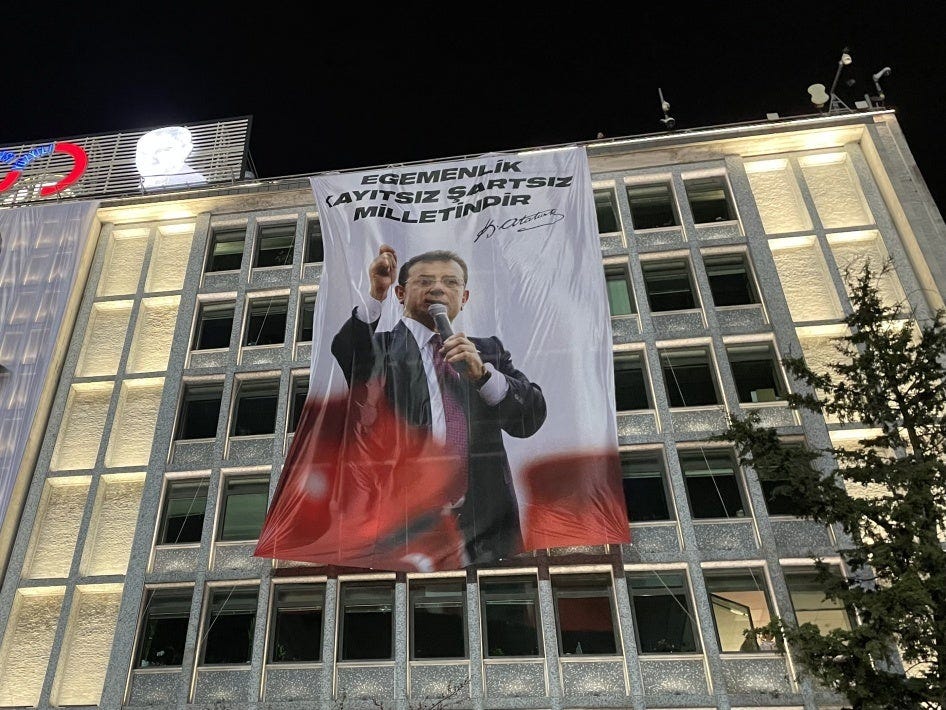
from protests to protests & boycotts
What began as mass demonstrations following the arrest of Istanbul Mayor Ekrem İmamoğlu has now expanded into a broader economic protest.
This week, student groups and opposition leaders called for a 24-hour nationwide shopping boycott, urging consumers to avoid spending and for businesses to close in solidarity.
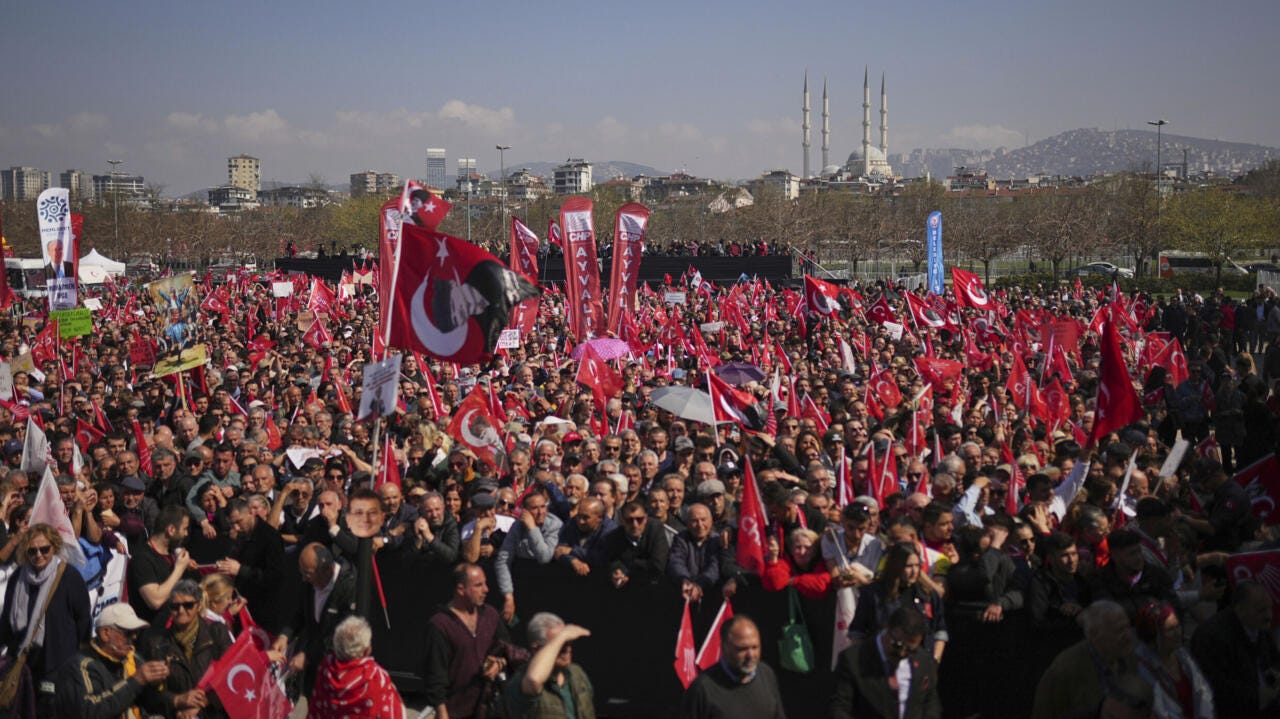
The aim: to hit companies seen as aligned with the Erdoğan government, particularly media outlets that ignored the protests. CHP leader Özgür Özel called the boycott “a show of consumer power against repression,” and İmamoğlu, posting from prison through his team, endorsed it as well.
While the impact on the economy remains unclear, the response from officials came quick.
Interior Minister Ali Yerlikaya labeled the boycott a “coup attempt against our economy,” and Trade Minister Omer Bolat warned businesses could seek damages from those who organized the protests.
The Istanbul Chief Prosecutor’s Office has since launched a criminal investigation into those behind the campaign.

Some businesses did shut down, and malls in Istanbul reported lower foot traffic. Others, like EspressoLab and companies affiliated with pro-government media, became symbolic targets of the protest movement.
government reaction
The Turkish government moved quickly to clamp down on dissent following the arrest of Istanbul Mayor Ekrem İmamoğlu. Authorities have cast both the protests and the economic boycott campaign as threats to national stability, responding with mass arrests, media censorship, and legal investigations.
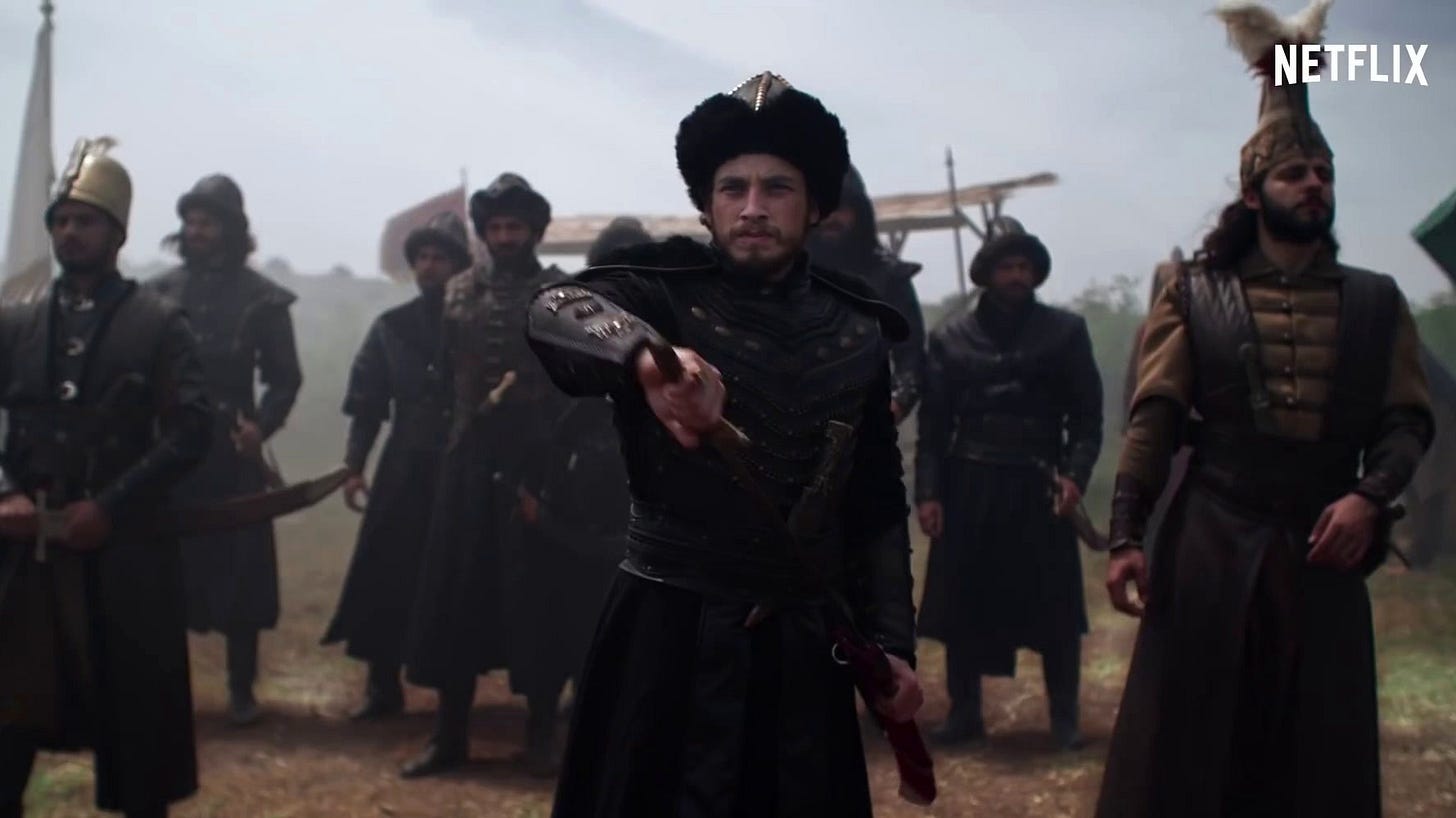
On April 3, police detained 11 people, including Cem Yiğit Üzümoğlu, a well-known actor who played Sultan Mehmed in Netflix’s Rise of Empires: Ottoman, over social media posts promoting a one-day shopping boycott. Prosecutors are pursuing charges of “inciting hatred and hostility” and “discrimination”, charges that are increasingly being used against opposition figures and civil society actors.
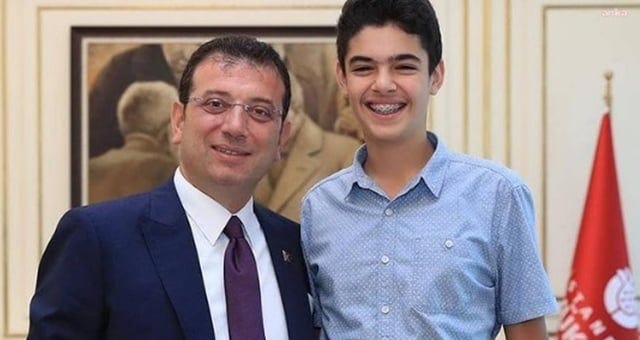
The Istanbul Chief Prosecutor’s Office has launched criminal investigations into opposition members, student groups, and CHP officials for organizing or supporting the boycott, which targeted businesses seen as aligned with the ruling party.
One CHP member was stabbed in Trabzon’s Ortahisar district while collecting signatures in support of İmamoğlu. The suspect was arrested.
According to the independent ANKA News Agency, more than 2,000 people have been detained since the protests began on March 19, with at least 316 held in pretrial detention.
Many of those arrested are students, and lawyers report serious mistreatment in custody. Beatings, denial of food and water, and restricted access to legal counsel or family. Police denied accusations of abuse.
The crackdown has extended well beyond protesters. Journalists covering the demonstrations have also been targeted:
At least nine were detained in home raids, including AFP photographer Yasin Akgül and prominent freelancers Bülent Kılıç and Zeynep Kuray.
Others were detained in the field, including foreign reporters. The BBC’s Mark Lowen was held for 17 hours before being deported to London.
From March 21–23, at least 14 journalists were injured, some shot with rubber bullets or assaulted by police.
The government’s media watchdog, RTÜK, imposed fines and temporary broadcast bans on opposition channels that aired footage of the protests. One outlet, Sözcü TV, faces a 10-day ban.
Opposition leader Özgür Özel has criticized both the arrests and the targeting of social media accounts linked to the boycott campaign. “If you become a tool for anti-democratic practices today,” he warned, “think carefully about what this nation will do to you.”
a small act with big meaning
One of the most visible targets of the recent boycott was Espressolab, a Turkish coffee chain that has become an unlikely political flashpoint.
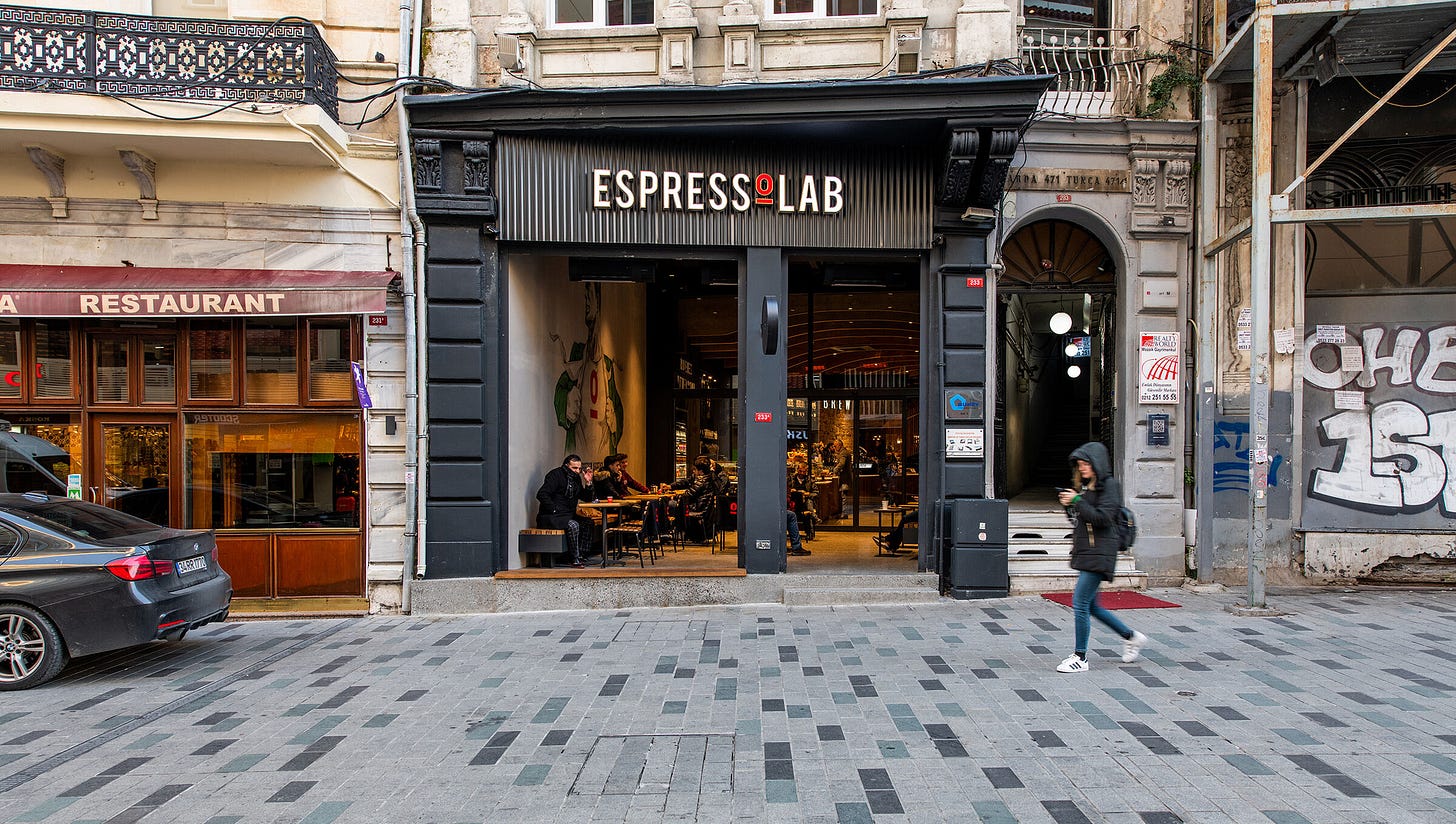
Once seen as a local success story, the brand is now at the center of a tug-of-war between government supporters and the opposition.
The backlash began after opposition leader Özgür Özel publicly urged people to avoid the chain, accusing it of being too closely aligned with the Erdoğan administration.
Some student groups had already been calling for a boycott before Özel’s endorsement, citing the company’s ties to ruling party figures and its growing presence on university campuses.
Pro-government figures quickly rallied behind the brand. Youth wings of the ruling Justice and Development Party (AKP) organized visits to Espressolab stores.
Former minister and AKP MP Mustafa Varank was photographed at a branch in Ankara, and images resurfaced online showing President Erdoğan and nationalist ally Devlet Bahçeli visiting one of its locations in 2020. In response to growing tensions, stores in some cities began displaying Turkish flags outside their doors.
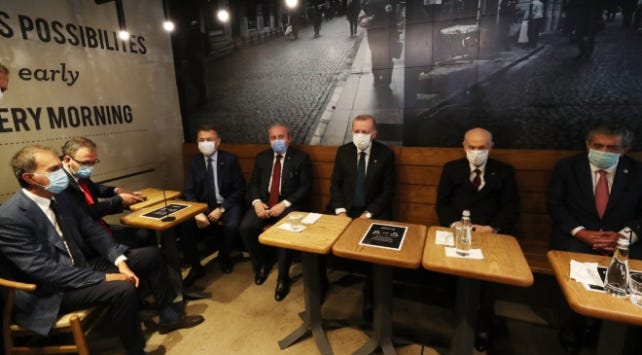
Founded in 2014 by Esat Koçadağ, Espressolab has grown rapidly, with over 360 locations in Turkey and abroad, and is promoted as a homegrown alternative to global coffee chains.
But its perceived proximity to government figures has made it a symbolic battleground. During the protests, some students even attempted to shut down its first location at Bilgi University.
Espressolab later responded by distancing itself from politics, insisting it has no links to the government or undisclosed backers. The company highlighted that the majority of its locations, 93%, are run by independent franchise owners, and positioned the backlash as an unfair attack on a homegrown Turkish business that has expanded internationally.
But for many protesters, the boycott isn't about the coffee. It's about what the brand has come to represent: the blurred lines between business and politics, and the shrinking space for dissent in daily life. In a climate where public protest can come at a steep cost, choosing where not to spend money has become one of the few forms of accessible resistance.
the bigger picture
The unrest in Turkey comes at a moment when the country was just beginning to stabilize. After years of soaring inflation and policy unpredictability, economic indicators had started to improve. Inflation dipped below 40% for the first time since mid-2023, foreign capital had cautiously begun to return, and the Turkish lira had held steady for several months.
That fragile progress is now under threat.
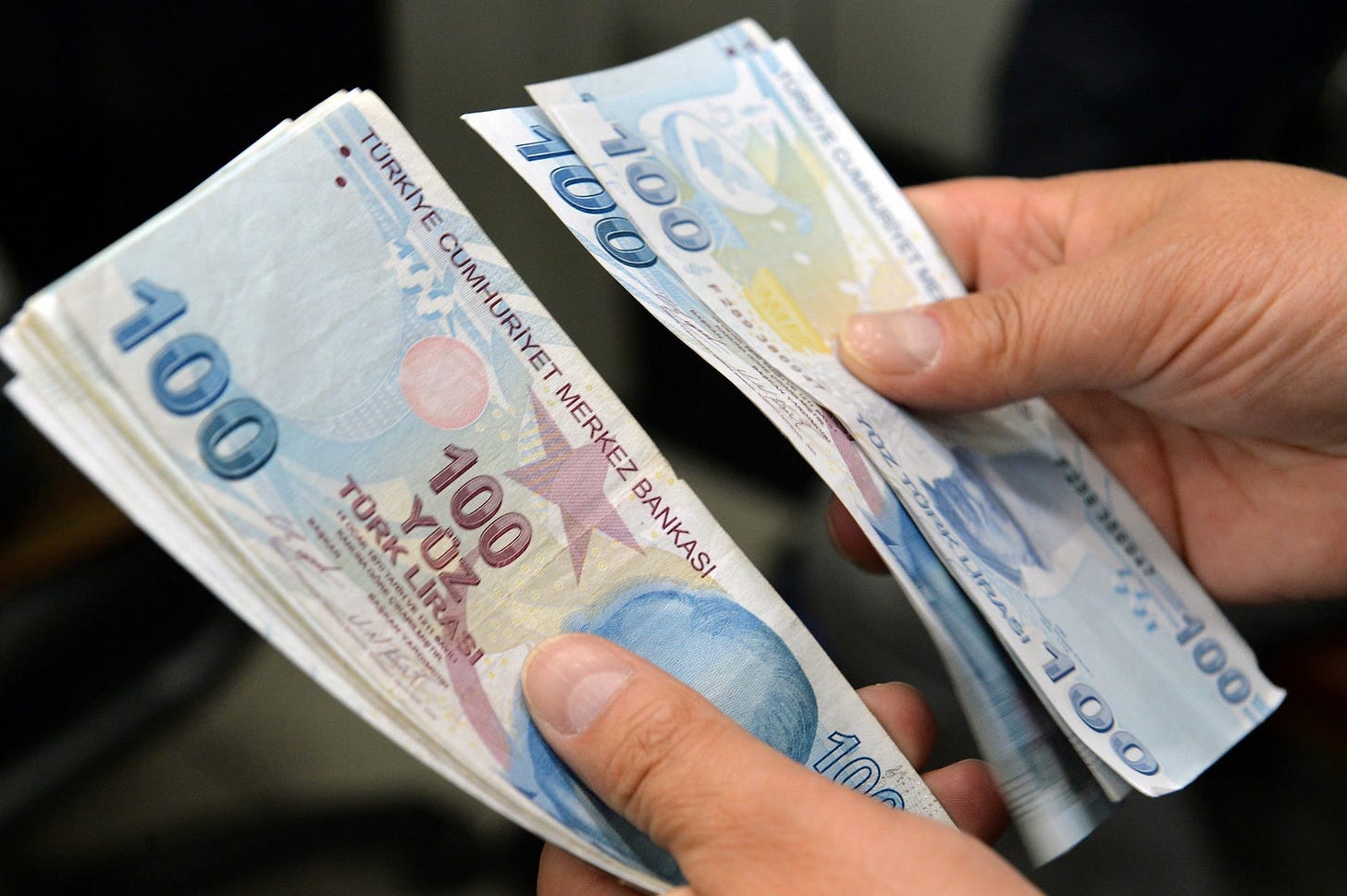
Following İmamoğlu’s arrest, the lira dropped to a new all-time low against the dollar and euro. The stock market plunged nearly 20%, its worst decline since the 2008 global financial crisis. Turkey’s central bank responded with emergency measures, raising interest rates, tightening liquidity, and banning short selling, which briefly calmed markets. But analysts warn the damage isn’t over. The lira’s weakness will likely push up import costs, keeping inflation high well into 2025, despite recent downward trends.
Investor confidence, too, has taken a hit. The memory of Erdoğan’s earlier crackdowns and erratic economic policies remains fresh, and the current wave of arrests and political pressure on the judiciary has revived fears of democratic erosion, and with it, long-term financial instability.
At the same time, Turkey is feeling the squeeze from abroad. New 10% U.S. tariffs on imports, amd also a 25% duty on auto parts and vehicles, are expected to hit key Turkish export sectors. Trade with the U.S., Turkey’s ninth-largest export market, could slow significantly, particularly in automotive, steel, and textiles.
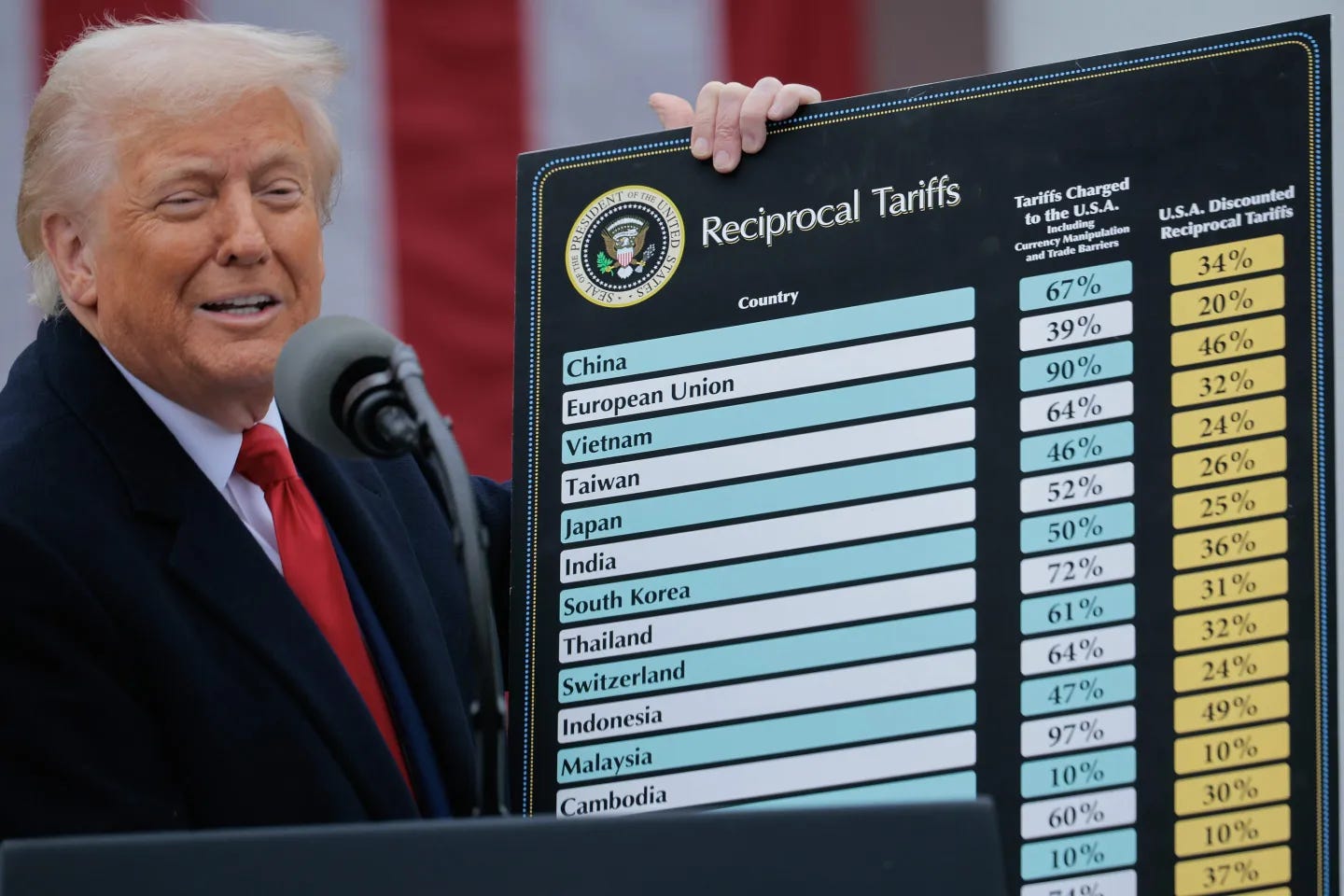
Despite this, İmamoğlu remains in Silivri prison, and the opposition CHP has confirmed him as their presidential candidate. The government, however, has revoked his academic credentials, a move that could be used to block his candidacy.
Internationally, the reaction has been muted. While some EU officials and U.S. Secretary of State Marco Rubio have voiced concern, Turkey’s growing importance to European defense, especially as NATO reorients in response to the war in Ukraine and fraying U.S.–EU ties, means most Western governments are treading carefully. Erdoğan’s growing role in Europe’s security framework has come at the cost of turning a blind eye to democratic backsliding at home.
Still, protests across Turkey continue, and public anger remains high. With economic anxiety mounting and political tensions escalating, the country finds itself at a intersection, not just between government and opposition, but also between fragile recovery and renewed crisis.




